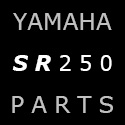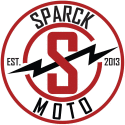We noticed you are blocking ads. DO THE TON only works with community supporters. Most are active members of the site with small businesses. Please consider disabling your ad blocking tool and checking out the businesses that help keep our site up and free.
You are using an out of date browser. It may not display this or other websites correctly.
You should upgrade or use an alternative browser.
You should upgrade or use an alternative browser.
Yamaha rd350 Road Racer Liquid Cooled!!
- Thread starter Hurco550
- Start date
Re: Yamaha rd350 road racer
I can't really complain. Working these hours allows me to take about two months off in the summer. That works for me.Redbird said:Yea, I know how it is. I average 12hr days. I don't plan much during the week because I'm generally either working or sleeping
Re: Yamaha rd350 road racer
Also, I posted it up in that other thread, but found this cht setup that's for an ultralight aircraft. I started out looking for an old one for an arctic cat or boaski snowmobile, but they are a little hard to find in good nic, and more expensive than these are new. It will be nice to know the head temp once I actually get this thing going. Probes install under the spark plugs.

Also, I posted it up in that other thread, but found this cht setup that's for an ultralight aircraft. I started out looking for an old one for an arctic cat or boaski snowmobile, but they are a little hard to find in good nic, and more expensive than these are new. It will be nice to know the head temp once I actually get this thing going. Probes install under the spark plugs.

Re: Yamaha rd350 road racer
A hair less than $70 for the gauge and sensors to my doorMaritime said:That's Kool Levi, what do they cost?
Maritime
Over 10,000 Posts
Re: Yamaha rd350 road racer
Not bad, I'll keep that in mind should I need one. The temp gauge doesn't work on the CX and I'd like something to replace it, only I'd need to know what the temp range for the heads should be on it vs the coolant temp the normal gauge reads.
Not bad, I'll keep that in mind should I need one. The temp gauge doesn't work on the CX and I'd like something to replace it, only I'd need to know what the temp range for the heads should be on it vs the coolant temp the normal gauge reads.
Re: Yamaha rd350 road racer
Right. I haven't seen many people run a cht gauge on top of a liquid cooled motor. Even on an air cooled two stroke, if looking for signs of detonation, I've seen a few people argue that by the time the heat reaches the sensors, the damage is already done. In my mind this is mostly a neat addition without a huge complexity or weight penalty, as well as some way to monitor the head temps if I happen to get caught in traffic with the full fairing.Maritime said:Not bad, I'll keep that in mind should I need one. The temp gauge doesn't work on the CX and I'd like something to replace it, only I'd need to know what the temp range for the heads should be on it vs the coolant temp the normal gauge reads.
Re: Yamaha rd350 road racer
Yep, electrical trouble shooting is not my thing. That's one of the few parts of working on old bikes that isn't enjoyable to me. I'm lucky to have a buddy that is a forklift mechanic and his bead and butter is electrical trouble shootingMaritime said:Yep, gotcha, I kind of thought of that after I typed it. I just need to get off my ass and trace the wiring to the gauge with a multi meter and test the temp sensor and see which is buggered.
Re: Yamaha rd350 road racer
I've run them on air cooled, and if you are actually watching, you can absolutely save your engine. When you see the temp needle climbing faster than your tach, it's time to let go of the throttle! 300o to 450o+ in just a couple of seconds.
hurco550 said:I've seen a few people argue that by the time the heat reaches the sensors, the damage is already done.
I've run them on air cooled, and if you are actually watching, you can absolutely save your engine. When you see the temp needle climbing faster than your tach, it's time to let go of the throttle! 300o to 450o+ in just a couple of seconds.
Re: Yamaha rd350 road racer
That's good to know. Did you run similar ones from an aircraft or something different?
jpmobius said:I've run them on air cooled, and if you are actually watching, you can absolutely save your engine. When you see the temp needle climbing faster than your tach, it's time to let go of the throttle! 300o to 450o+ in just a couple of seconds.
That's good to know. Did you run similar ones from an aircraft or something different?
Re: Yamaha rd350 road racer
This: http://www.ebay.com/itm/VDO-Cylinder-Head-Temp-600-Degrees-Kit-/152347081170. I used their thermocouples as well which have high temp wires and sit under the spark plug. When I was drag racing I watched this instead of my tach a lot of the time.

This: http://www.ebay.com/itm/VDO-Cylinder-Head-Temp-600-Degrees-Kit-/152347081170. I used their thermocouples as well which have high temp wires and sit under the spark plug. When I was drag racing I watched this instead of my tach a lot of the time.

Re: Yamaha rd350 road racer
Did you run two gauges or did that average the two cylinder temps?jpmobius said:This: http://www.ebay.com/itm/VDO-Cylinder-Head-Temp-600-Degrees-Kit-/152347081170. I used their thermocouples as well which have high temp wires and sit under the spark plug. When I was drag racing I watched this instead of my tach a lot of the time.

Re: Yamaha rd350 road racer
I only ran a single gauge. I'd swap over the thermocouple now and again but never noticed any significant difference between cylinders. If you ran too much advance and the thing started detonating, in theory you'd have the same problem on the other cylinder as well. I stopped using them all together after a time as the usefulness (to me at least) went fairly thin (probably have just cursed myself for saying that!), as temperatures were always pretty constant unless there was detonation in which case you got instantly soaring temps above the norm. The thing is, such an instrument is not like a water temp gauge, as many things can start to go awry at any time down the road and the long term monitoring has value. In the main, once you have the thing tuned, there is not much likely to cause a change. Cylinder head temperature in general seemed as much dependent on ambient temperature as anything else once you got the thing running half way right. I think if you want to tune to the razor's edge they are pretty useful, but on a street bike you just can't do that with any degree of safety. Get the ignition advance where it REALLY sings one day, and it's doom the next day with no changes except the weather or time of day. You just have to tune to some margin of safety if you want daily use. Once you have it there, the gauge functions more like a light that tells you the thing is running - it never tells you anything useful. However, if you are not sure about what you are doing, being able to monitor cylinder head temperature is pretty valuable - but you do have to pay attention. If you don't, you will discover your error at nearly the same time - it will just be a lot more expensive!
I only ran a single gauge. I'd swap over the thermocouple now and again but never noticed any significant difference between cylinders. If you ran too much advance and the thing started detonating, in theory you'd have the same problem on the other cylinder as well. I stopped using them all together after a time as the usefulness (to me at least) went fairly thin (probably have just cursed myself for saying that!), as temperatures were always pretty constant unless there was detonation in which case you got instantly soaring temps above the norm. The thing is, such an instrument is not like a water temp gauge, as many things can start to go awry at any time down the road and the long term monitoring has value. In the main, once you have the thing tuned, there is not much likely to cause a change. Cylinder head temperature in general seemed as much dependent on ambient temperature as anything else once you got the thing running half way right. I think if you want to tune to the razor's edge they are pretty useful, but on a street bike you just can't do that with any degree of safety. Get the ignition advance where it REALLY sings one day, and it's doom the next day with no changes except the weather or time of day. You just have to tune to some margin of safety if you want daily use. Once you have it there, the gauge functions more like a light that tells you the thing is running - it never tells you anything useful. However, if you are not sure about what you are doing, being able to monitor cylinder head temperature is pretty valuable - but you do have to pay attention. If you don't, you will discover your error at nearly the same time - it will just be a lot more expensive!
Shoeman
Active Member
Re: Yamaha rd350 road racer
BINGO!
jpmobius said:I think if you want to tune to the razor's edge they are pretty useful, but on a street bike you just can't do that with any degree of safety. Get the ignition advance where it REALLY sings one day, and it's doom the next day with no changes except the weather or time of day. You just have to tune to some margin of safety if you want daily use.
BINGO!
sav0r
Coast to Coast
Re: Yamaha rd350 road racer
In my opinion CHT is a pretty awful way of tuning a two stroke, as is water temp. Neither of which react quick enough to generate any meaningful feedback. They do however provide a baseline for understanding engine condition. As JMobius says, we always used ambient temperature as a factor of CHT, it's been a while but I believe we aimed for 350F plus ambient, if we got much over 500 we were too hot. Unfortunately mixture had little effect generally, other factors were more important. This wasn't for an RD, but this was for other Yamaha racing engines. On the street I doubt you'll ever see anywhere near 500F as this required sustained full throttle operation. EGT and especially Lamda are much more useful. Lambda brings some fowling issues that really aren't great for street use. So that leaves EGT. I use dual EGT's on my street RD and have had good success. That's not to say they are without issue though. I record them at 20hz and when I use them as a tuning aid I only review the data from a consistent route (my favorite twisty section of road on the way to my office) post ride. And that's the real kicker here, if you are tasked with manually reading that gauge while riding on the road you are asking for more than engine trouble, especially considering that you won't be getting any valuable readings until you really wind the thing out. Moreover, you have to establish a consistent environment to read EGT. The track is great for this, the street is much harder. I've seen a tail wind reduce the EGT reading, imagine how grade, straight length, etc. can complicate things. The good news is that used data loggers are becoming cheaper by the day, the technology from the early 2000's can often record at 200hz on several channels. The loggers I use in my RD has 8 external inputs which I use for EGT and some shock pots as well as several other channels such as ambient temp and battery voltage that are integrated. I found mine used and got a good deal.
In my opinion CHT is a pretty awful way of tuning a two stroke, as is water temp. Neither of which react quick enough to generate any meaningful feedback. They do however provide a baseline for understanding engine condition. As JMobius says, we always used ambient temperature as a factor of CHT, it's been a while but I believe we aimed for 350F plus ambient, if we got much over 500 we were too hot. Unfortunately mixture had little effect generally, other factors were more important. This wasn't for an RD, but this was for other Yamaha racing engines. On the street I doubt you'll ever see anywhere near 500F as this required sustained full throttle operation. EGT and especially Lamda are much more useful. Lambda brings some fowling issues that really aren't great for street use. So that leaves EGT. I use dual EGT's on my street RD and have had good success. That's not to say they are without issue though. I record them at 20hz and when I use them as a tuning aid I only review the data from a consistent route (my favorite twisty section of road on the way to my office) post ride. And that's the real kicker here, if you are tasked with manually reading that gauge while riding on the road you are asking for more than engine trouble, especially considering that you won't be getting any valuable readings until you really wind the thing out. Moreover, you have to establish a consistent environment to read EGT. The track is great for this, the street is much harder. I've seen a tail wind reduce the EGT reading, imagine how grade, straight length, etc. can complicate things. The good news is that used data loggers are becoming cheaper by the day, the technology from the early 2000's can often record at 200hz on several channels. The loggers I use in my RD has 8 external inputs which I use for EGT and some shock pots as well as several other channels such as ambient temp and battery voltage that are integrated. I found mine used and got a good deal.
Re: Yamaha rd350 road racer
I started with a good relatively cheap Innovate Lambda (air:fuel) gauge and then added EGT and TPS and RPM and data logger and there is no way in hell I could think about trying to read a fraction of that live on the street or on the strip. After a run, fine, but not real time.
I tried a nice set of Wetsach (SLP) triple EGT pickups and gauge, but when the wick is wound right up, there's no time to read the gauges let alone react.
I like CHT gauges as a general guide to see if both sides (or all three in my case) are reasonably similar but I'm not sure I'd be able to react fast enough to a CHT spike (detonation) while riding hard. But as a set up tool, they have a place in the toolbox.
I started with a good relatively cheap Innovate Lambda (air:fuel) gauge and then added EGT and TPS and RPM and data logger and there is no way in hell I could think about trying to read a fraction of that live on the street or on the strip. After a run, fine, but not real time.
I tried a nice set of Wetsach (SLP) triple EGT pickups and gauge, but when the wick is wound right up, there's no time to read the gauges let alone react.
I like CHT gauges as a general guide to see if both sides (or all three in my case) are reasonably similar but I'm not sure I'd be able to react fast enough to a CHT spike (detonation) while riding hard. But as a set up tool, they have a place in the toolbox.
Re: Yamaha rd350 road racer

Well Fuck You then!!hurco550 said:I can't really complain. Working these hours allows me to take about two months off in the summer. That works for me.
Re: Yamaha rd350 road racer

You mean you don't get two months off every summer? I thought that's how it worked for everyone!Redbird said:Well Fuck You then!!
Ply318ci
Been Around the Block
Re: Yamaha rd350 road racer
I do and I only work 8 hours a day. But those 8 hours are spent with Jr. High kids. So kind of a trade off I guess.
Sent from my iPhone using Tapatalk
hurco550 said:You mean you don't get two months off every summer? I thought that's how it worked for everyone!
I do and I only work 8 hours a day. But those 8 hours are spent with Jr. High kids. So kind of a trade off I guess.

Sent from my iPhone using Tapatalk





